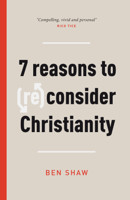
To say that there’s not enough evidence that the stories in the Bible actually happened is a little unfair. If you applied that same degree of historical assessment to other events in history, you’d have to wipe out virtually everything and everyone we know from the ancient world.
Cleopatra VII, the queen of Egypt and lover of Mark Antony, is arguably the most famous female of antiquity, yet we have no tomb or mummified body of her. What we know of her mainly comes from written sources, just like those in the Bible, but no one questions her existence or the generally accepted facts about her life.
“The point is, much of history is full of evidential blanks, and historians have always had to do a fair amount of joining the dots and filling in the gaps for almost any event or person from history.”
Or take the Battle of Actium, which took place on the western coast of Greece in 31 BC—one of the most famous naval battles of the Roman Empire. You can read much about it from a number of different ancient accounts, yet we have no hard proof that this battle ever occurred other than our written sources. According to one account (Plutarch’s Life of Antony, 68:1), around 700 ships were involved, with more than 5,000 casualties. (That’s more than double the number of Pearl Harbor during World War Two.) Many of the ships were sunk, some very close to the coast of mainland Western Greece, yet we have not found a single shipwreck to prove that the battle took place. Despite several expeditions, marine archaeologists today still haven’t uncovered any convincing archaeological proof that this battle actually happened. But again, as far as I know, there are no scholars saying that the Battle of Actium therefore never happened.
Fast forward over 1,500 years later to one of England’s most famous sons: William Shakespeare. Despite a plethora of historians delving into his past, we still don’t know when this giant of English literature was born! We can take an educated guess at it on account of a baptismal entry in his local church, but we don’t know his actual birthday. Likewise, the birth date of Christopher Columbus, Anne Boleyn (the second wife of King Henry VIII), Ludwig van Beethoven, Daniel Boone and Jack Daniel (of Tennessee Whiskey fame) are all unknown to us. (And as far as Jack Daniel goes, other than the year, we don’t know the date of his death either!)
The point is, much of history is full of evidential blanks, and historians have always had to do a fair amount of joining the dots and filling in the gaps for almost any event or person from history. The fact is that just about all ancient history struggles when it comes to solid confirmation through watertight evidence.

Examine the evidence for Christianity and why it is worth considering.
It should come as no surprise, then, that some of the Bible’s most famous stories—such as those of Moses and the Israelites’ escape from slavery in Egypt, and the journey to the promised land, recorded in the book of Exodus—have no other external evidence to back them up. But concluding (as some critics do) that these things therefore never happened is a little unreasonable, given how long ago the exodus took place. All historians will tell you that just about any event dating from that far back (around 1250 BC) is unlikely to be verified by lots of solid evidence. Plus, what trace would you expect to find of a bunch of nomadic, ex-slaves in a sand-blown desert over 3,000 years later? Furthermore, there’s no way that the great, proud Egyptians would have recorded the humiliating loss of thousands of slaves in their own hieroglyphic inscriptions—indeed, it’s likely they’d have wanted to deliberately airbrush out such an event. It therefore comes as no surprise that we have no equivalent Egyptian record to the biblical account of the exodus.
But when it comes to other events of the Bible, it’s not true to say there’s little evidence. There are tons of it... literally! I regularly run private tours of the British Museum in London on biblically related artefacts, and, once a year, I have the privilege of guiding around 35 adults on archaeological tours of Israel. It’s very easy for people to see first-hand the overwhelming amount of evidence that confirms much of the Bible.
Particularly when it comes to the New Testament (the section of the Bible written after Jesus’ life on earth), in many cases there’s far more evidence for these documents than there are for many other events of antiquity that we take for granted. It’s simply not true, and frankly, quite ignorant, to say there’s little historical proof for the stories about Jesus.
This is an extract from Seven Reasons to (Re)Consider Christianity by Ben Shaw. In this warm, honest book, Ben invites sceptical readers to think again. He outlines seven reasons why Christianity is worth considering—or reconsidering—not least because it offers some thought-provoking and rational answers to our deepest questions.